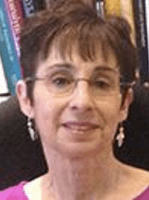
***B’nai Brith Canada is hosting a Town Hall meeting to discuss the effects of MAID on March 29, 2017 at our headquarters in Toronto. Admission is free, but please RSVP to [email protected]*broken link 2**
Of all the Canadian provinces, Ontario is experiencing the most difficulty in adopting Medical Assistance in Dying (MAID), especially in working with physicians who do not want to be involved in any scenario that involves deliberately assisting patients to end their lives.
Upon passing MAID into law last year, the federal government reminded the provinces of the Supreme Court’s intention that the rights of both patients and physicians be reconciled. This has been a relatively smooth process, except in Ontario.
Changes in the guidelines (page does not exist) created by the College of Physicians and Surgeons of Ontario appeared in December 2015, when it seemed that MAID would soon become law. The College drafted an initial guidance which laid out the obligations of physicians who object to participating for reasons of conscience. This addressed the concerns of many doctors who believe – for moral, religious and/or personal reasons – that assisting patients to die on purpose is beyond the scope of a doctor’s expected work and that participating in a person’s death should not be forced on anyone.
Prior to these changes, the guidelines expected physicians who objected to explain the patient’s options and advise the patient to see another physician. The new draft added the requirement that the physician must also make an “effective referral” to another doctor.
This amendment came with immediate controversy yet, despite a massive online objection and a raucous meeting in which dissenters were reportedly shouted down, it remained part of the new guidelines. Consequently, Ontario is effectively going down the route of forcing physicians to be complicit in the death of their patients or risk sanctions from their governing body.
Meanwhile, other provinces are offering a variety of access options. Alberta, for example, has established a service for end-of-life issues, which can be accessed directly by physicians, patients or their families via telephone or email. Multidisciplinary teams are available to assess patients and offer the opportunity for in-depth discussions, as well as other services.
The capacity to directly access end-of-life advice can also be useful for patients who have no family doctor or for those who feel embarrassed to ask their physicians about it, particularly for those doctors who object to MAID.
In contrast, the College of Physicians and Surgeons of Ontario – which claims to provide mandatory referrals as the gold-standard of care – contents itself with a physician-only telephone line. This line is not available to patients, and is limited only to physicians who make a formal referral.
What recourse, then, exists for Ontario patients without a physician, or whose physician cannot refer? With no alternate pathway to assisted dying, such as a central care service like Alberta’s, the answer is “none.”
With its new guidelines, the College seeks to convince Ontarians that those physicians who do not want to refer their patients are abandoning them, when in fact the opposite is true. While some physicians may not want to refer their patients, they are willing to offer all the necessary information for them to at least contact a central care centre, especially if that centre has the capacity to offer a range of helpful and life-affirming options.
However, the College continues to justify its stance. “The federal legislation does not compel physicians to provide or assist in providing medical assistance in dying,” it claims on its website. “For clarity, the College does not consider providing the patient with an ‘effective referral’ as ‘assisting’ in providing medical assistance in dying.”
This changing of the meaning of words – referring is not assisting? – is significant. The College’s website also states that when a physician provides an illegal service for a patient, the College can sanction him/her. The same is true for referring for the same service. The College cannot have it both ways: referral is either trivial or it is not.
Our provincial government is preparing to take another look at Bill 84 (page does not exist), an amendment to the MAID law. This should be an opportunity as, at present, Bill 84 does not recommend any conscience protection for physicians. This is wrong.
Adding amendments that will protect the human rights of all patients and physicians is best for everyone. If the ministry allows patients to access assisted dying themselves via a central care system, mandatory referral won’t be required. When that occurs, Ontario will finally be in line with the rest of the country and with Canadian values.
Dr. Janice Halpern is a psychiatrist in private practice in Toronto, and is an assistant professor in the Department of Psychiatry at the University of Toronto.
This article was originally published in The Medical Post.

